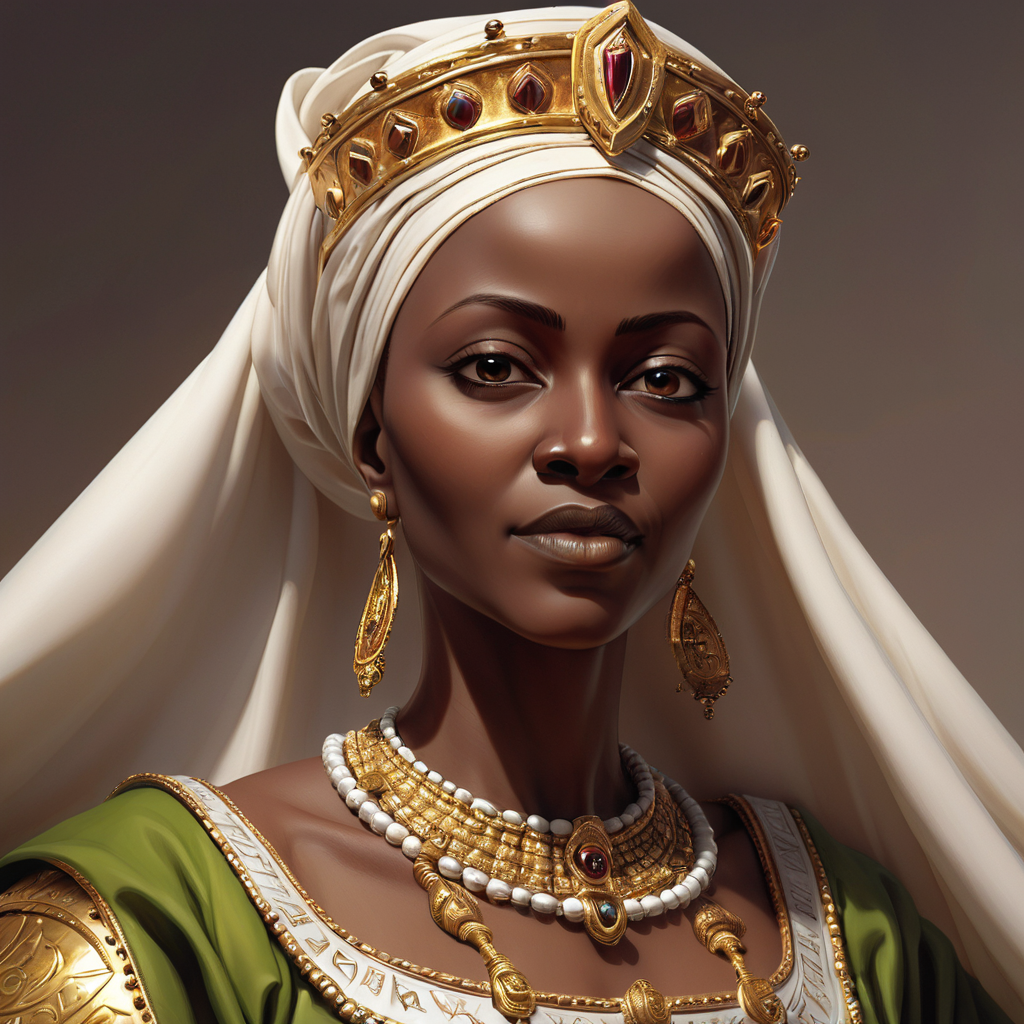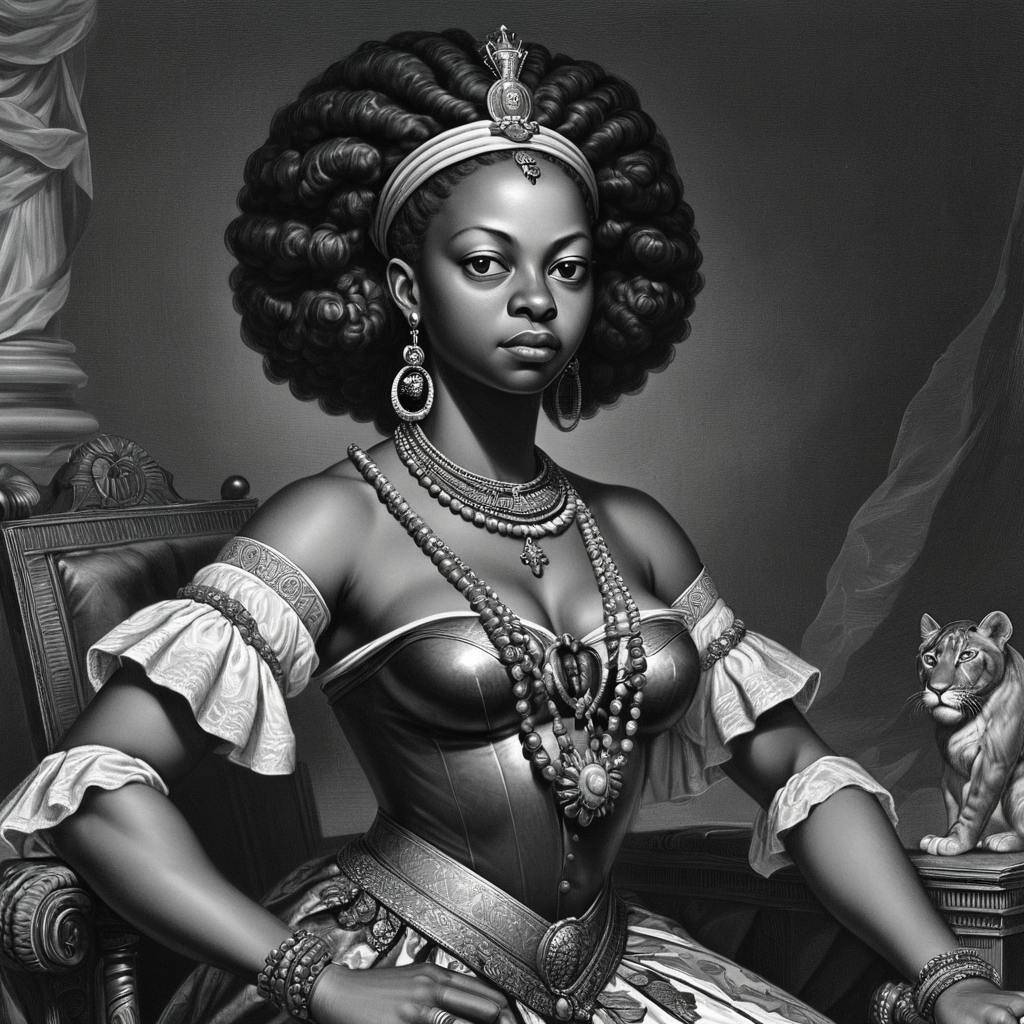10 African Queens in History
Historically, Africa was made up of kingdoms or empires that went back as far as 100 CE. By the end of the 19th century, they had all but fallen due to the lasting impact of colonialism. During the eras of their existence emerged remarkable African queens who ruled, protected and shaped entire kingdoms. We take a look at 10 such phenomenal African queens from the iconic Nefertiti of Egypt to the lesser known but just as powerful queens that have left an erasable mark in history:
1. Queen Amina of Zaria (1533-1610)
Reigned Zazzau (what is now Zaria in Kaduna in Nigeria) for 34 years. More than just a warrior queen, Amina was a shrewd strategist and diplomat. Expanding the Hausa Kingdom through cunning negotiations and fierce battles, she earned the moniker "Amina, the Conqueror." Legend speaks of her leading 20,000 cavalry into battle, clad in shining armour and brandishing a bow. Her reign saw advancements in agriculture, trade, and infrastructure, solidifying the region's prosperity for generations.
2. Queen Nandi of Zulu (c 1760 -1827)
A South African Zulu Queen and mother of Shaka Zulu. Renowned for her wisdom, political acumen, and courage, she served as advisor and confidante to her son. During Shaka's youth, she ensured his safety and education, shaping him into the formidable leader he became. Her influence on Zulu traditions and military strategies is undeniable, earning her the title "Mother of the Nation."
3. Queen Makeda of Sheba (9th century BC)
Ruled Ethiopia and Egypt for a combined 50 years. Shrouded in legend yet etched in Ethiopian, Judaism, Islamic and Christian and Coptic narratives. Makeda's reign is a testament to her wisdom and wealth. Her legendary visit to King Solomon sparked cultural exchange and fueled centuries of storytelling.
4. Yaa Asantewaa of the Ashanti (1840-1921)
Queen Mother of the Ashanti in Ghana and Gatekeeper of the Golden Stool. Yaa Asantewaa is most famously known for when British colonialism threatened her people's freedom, at the age of 70, defied expectations and led the Ashanti resistance. A fierce warrior and astute strategist, she rallied her troops with the rallying cry "I must say this: if you, the men of Asante, will not go forward, then we will. I shall call upon my fellow women. We will fight the white men. " Though ultimately captured and exiled, her legacy as a symbol of courage and resistance against oppression continues to inspire.
5. Queen Nzinga of Angola (1583-1663)
Refusing to bow to Portuguese slave traders, Nzinga waged a guerilla war for decades, forming strategic alliances and mastering guerilla tactics. Nicknamed "Njinga Mbande," meaning "Queen who turns men into women," she outsmarted and outmanoeuvred her enemies, securing temporary peace treaties and preserving her people's autonomy. Her cunning and resilience remain an inspiration for those fighting for freedom and justice.
6. Empress Menen of Ethiopia (1889-1962)
Wife to Emperor Haile Selassie, Empress Menen was a powerful advocate for Ethiopia's modernization and African self-determination on the world stage. A champion of education and women's rights, She established the Empress Menen School for Girls in Addis Ababa, the first all-girls school as well as built hospitals and sponsored initiatives for the poor and disabled.
7. Empress Zawditu of Ethiopia (1876-1930)
Ruled from 1916 to 1930. Shattering tradition, Zawditu became the first ruling Empress of Ethiopia. Although she broke these grounds, the Empress remained a staunch conservative and traditionalist, heavily supported by the church. She was succeeded by the modernist Emperor Haile Selassie.
8. Amanirenas of Kush (End of the 1st century BCE to beginning of the 1st century CE)
The Meroitic queen (present day Sudan) refused to yield to Roman expansion. In a battle which lasted 3 years, she led her armies with strategic brilliance, inflicting heavy losses on Augustus Caesar's soldiers, forcing him to retreat. Her victories secured Kush's independence for decades and cemented her reputation as a fearless defender of her people.
9. Nefertiti of Egypt (1370-1330 BC)
Nefertiti remains one of the most iconic ancient Egyptian figures. A queen of the 18th Dynasty and married to Amenhotep IV, her beauty had her regarded as a living fertility goddess! She wielded significant political power as co-regent alongside the Pharaoh and played a crucial role in promoting the worship of the Aten the sun god, as the one true god.
10. Moremi Ajasoro
(The 12 century queen): Married to King Omariyan of the Yorubaland region, now modern day Southwestern Nigeria. Their kingdom was being raided by the neighbouring Ugbos, enslaving the scores captured. Driven by unwavering determination and a love for her people, Moremi faced the escalating threat by sacrificing herself. Cunning and beautiful, she allowed herself to be captured in order to gather intelligence for her people. Enamoured by her beauty the Ugbo ruler married Moremi, positioning her perfectly to gain the secrets of the army. She eventually escaped and revealed all to the Yoruba army who then went on to defeat their enemy.

















